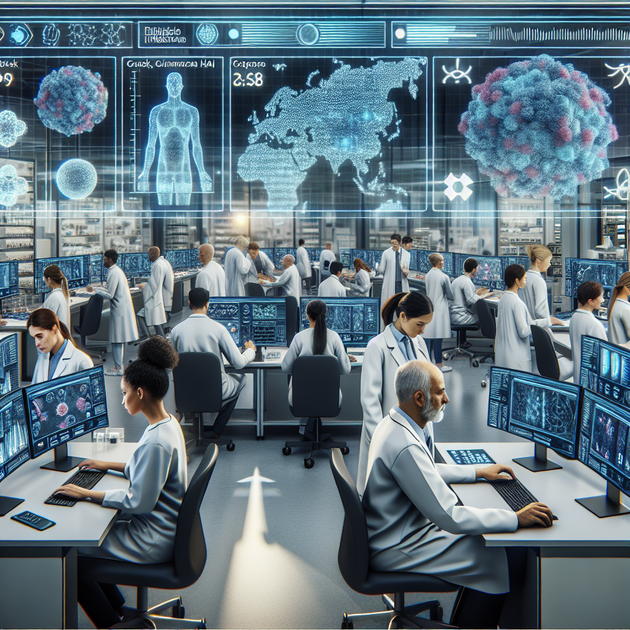What if the next big leap in cancer treatment came not from a lab bench, but from a powerful computer analyzing billions of data points? That’s exactly what’s happening thanks to Google DeepMind’s new AI, which is making waves in how researchers find promising cancer treatments.
How Google DeepMind’s AI Is Changing Cancer Research
DeepMind, known for its advances in artificial intelligence, has teamed up with cancer researchers to tackle one of medicine’s toughest challenges: finding effective cancer therapies faster and more efficiently. Traditional drug discovery is notoriously slow and expensive, often taking years of testing before a single treatment reaches patients.
The new DeepMind AI system analyzes vast amounts of biological and chemical data to spot patterns and relationships that humans might miss. By doing so, it’s able to predict which compounds could potentially stop cancer cells in their tracks. According to a recent BBC article, this technology has already helped scientists uncover new ways of attacking certain types of cancer.
The Science Behind the Breakthrough
So, how does it work? Instead of relying solely on trial and error in the lab, DeepMind’s AI uses machine learning models trained on massive datasets. These datasets can include:
- Genetic profiles of cancer cells
- Results from thousands of drug tests
- Clinical trial outcomes
- Chemical structures of experimental compounds
- Patient responses to past treatments
By crunching all this information, the AI suggests which drug candidates are more likely to succeed. This saves researchers time and resources, allowing them to focus on the most promising options. In fact, experts quoted by Nature say that AI-driven approaches could cut years off the drug development timeline.
Real-World Impact: A Story from the Lab
One team using DeepMind AI recently shared their experience in a university hospital setting. Faced with a rare form of cancer that didn’t respond to standard treatments, researchers fed clinical and genetic data into the AI platform. Within days, the system highlighted a little-known compound that showed promise against similar cancer types in previous studies.
The team quickly set up lab tests based on the AI’s suggestion. To their surprise, the compound stopped the growth of cancer cells far better than expected. While it’s too soon to call it a cure, this rapid progress would’ve taken months or even years without help from DeepMind’s technology.
What This Means for the Future of Cancer Treatment
Here’s why the DeepMind AI cancer breakthrough is so promising:
- Faster discoveries: AI pinpoints potential treatments in days instead of months.
- More options: Researchers can test more compounds than ever before.
- Personalized medicine: AI can suggest treatments tailored to a person’s unique cancer profile.
- Reduced costs: Less wasted time and resources means lower drug development costs.
- Wider collaboration: AI makes it easier for teams worldwide to share findings and build on each other’s work.
It’s not just about speed—AI is also opening doors to new types of drugs that might have been overlooked using traditional methods. For example, DeepMind’s work feeds into larger initiatives like those described by the National Cancer Institute, which aims to harness AI for better diagnostics and personalized therapies.
Will AI Become a Standard Tool in Cancer Research?
The buzz around DeepMind’s AI cancer breakthrough is growing, but experts caution that human oversight is still essential. AI can suggest promising leads, but laboratory tests and clinical trials remain crucial before any new treatment reaches patients.
Still, the pace of progress is exciting. As more hospitals and research centers adopt these tools, cancer research could look very different in just a few years. For patients and their families, that offers a new sense of hope that better treatments—and maybe even cures—are on the horizon.
So, what do you think—will AI become as common in cancer research labs as test tubes and microscopes? Share your thoughts below.

Leave a Reply